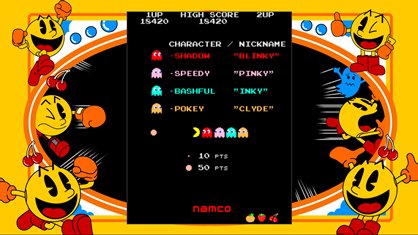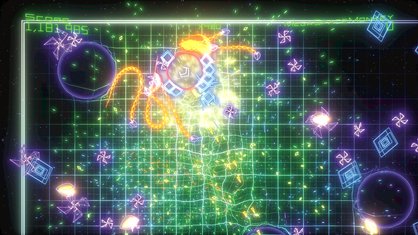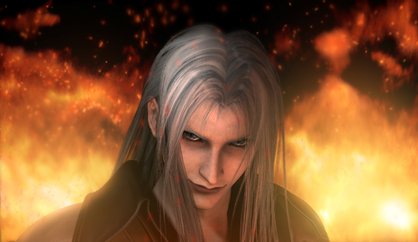Why games fail at storytelling
It's not just about bad acting and Jill sandwiches
But as human beings bound by the linear flow of time, we find ourselves - consciously or unconsciously - obsessed with narrative. We have to view every aspect of our lives as part of an ongoing flow of causality and thus, we have to make everything a part of a story. So naturally, we demanded stories of our videogames.

Above: The ingredients of an epic
It wasn't enough just to guide a block around a maze avoiding other blocks. Our block had to be personified by a mouth and the other blocks had to be ghosts. Pac-Man would have played the same regardless, but we needed to justify what was going on. But as mentioned above, the games of this time were abstract, blunt mish-mashes of whatever was possible, and so story inevitably became a retrospective improvisation, tacked on afterwards. And so, the crap videogame story was born.
It's strange that we're still suffering from this syndrome, but just as a relationship will follow the behaviour patterns forged in its first few weeks, so story has often been a secondary consideration to justify in-game action.
But while that factor - and the inevitable disregard for well-rounded characterisation, decent writing and competent acting that came with it - was for a long time the only reason for crap storytelling in games, as the medium has progressed, things have become more complicated.
WARNING SPOILERS WARNING! Intimate knowledge of Final Fantasy VII, Portal and Half-Life 2 plots revealed beyond this point. WARNING SPOILERS WARNING!
Camping
Sign up to the GamesRadar+ Newsletter
Weekly digests, tales from the communities you love, and more
There are now two distinct factions of game director. Some want to create a piece of pure gameplay - Geometry Wars, Quake 3, and Bomberman step up and take a bow - while others aspire to create a piece of narrative using videogames as their chosen medium.

Above: Geometry Wars doesn't care about plot. Those neon explosions are all the motivation you need
But the problem is, nine times out of ten, those story-driven game directors get it completely, utterly wrong. The fact is, Metal Gear and Final Fantasy are not good storytelling videogames. In fact, they're pretty poor. You see the problem is that in gaming's relative adolesence, we started to run before we could walk in terms of narrative, and devoid of the tools we needed to really tell stories through games, we borrowed the conventions of cinema and crudely stapled them on. And that just doesn't work.
In even the most 'story-driven' games, if cinematic cut-scenes are used, they and the actual game remain two completely separate entities. They feature the same character models and are stored on the same disc, but in actual fact, they are totally independent of each other. Take Final fantasy VII for example, or almost any JRPG for that matter.

Above: The Final Fantasy games' storytelling doesn't involve the player much more than the movie does
Cloud may be your protagonist, but the parts of the game in which you directly influence his actions - Golden Saucer date aside - consist only of moving an avatar around a map and guiding it through combat. As far as the development of the plot goes, you sit and watch a linear cartoon play it out for you. And they call them role-playing games? The approach only serves to highlight how the player isn't part of the story.
It's the same with everything from Super Mario Galaxy to Halo 3. However well realised, the cut-scenes are only really there to roughly contextualise your actions or explain a change in gameplay. The game itself isn't telling a story, and with story and game so unbound from each other, its no surprise that the quality of one so often plays second fiddle to the other as a design consideration. Regular juxtaposition between the two sections throws the player out of the narrative, especially when the cut-scenes are intrusive, Metal Gear-style diatribes of significant length. It's just not cohesive, and it feels very, very false indeed.



